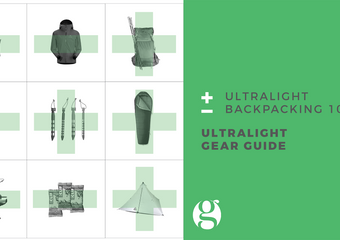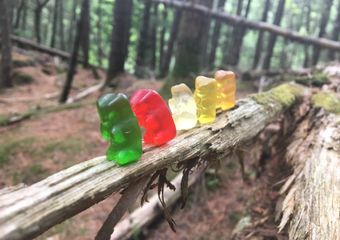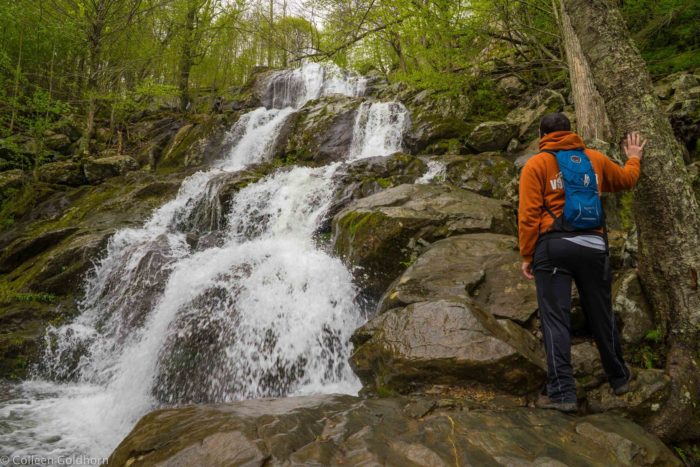7 Things I Wish I Knew Before My First Backpacking Trip
So, you have decided that you want to try to accomplish your first overnight trip out in the back country. Congrats! Chances are, pictures and movies made the whole experience look peaceful and easy, but now that you are looking into what gear you need and you are feeling just a little overwhelmed. We’ve all been there, welcome to the club.
Admittedly, there is a lot that goes into the first trip – it’s definitely finding the perfect balance between messing up and learning from those mistakes your first few times out. Remember these tips though, and it will be a whole lot less for you to try and figure out!
1) Don’t Mess Around With Bear Bags
If a bear (or any other animal) attempts to chew or claw it’s way through your tent to on your first trip – there is a good chance you will never want to sleep in the woods again (rightfully so). Don’t chance the odds when it comes to protecting your food / scented items. Make sure you use bear canisters if they are required where you plan to camp, research and practice proper bear hanging techniques beforehand, and don’t cook near your campsite. In addition, triple check your pack before going to bed for any spare granola bars or crumbs. It may not seem like much, but a few left over crumbs are just enough to tempt a mouse. Play it safe and you will have a worry-free night.
2) Follow Leave No Trace
They might just seem like a bunch of pointless rules, but following Leave No Trace (or LNT) is really important. It insures that the next person to come down the trail or camp at your campsite can enjoy the beauty of that specific spot the exact same way that you did. Or, just think about it like “what goes around comes around.” If you wouldn’t want to see trash or erosion at your campsite from someone else, then do the same for other people. LNT ensures not only that nature stays pristine for hikers, but that we are not trashing the place that thousands of animals call home. Pack out trash, camp in designated spots, and only use dead trees for fire wood. Following all of the principles will enhance your relationship with nature, and leave the trail a better place. (Learn more about LNT here!)
3) Know Your Gear
The old saying goes that your gear can be 2 of 3 things: cheap, durable, or lightweight. With that being said, it take a lot of research and testing before perfecting yoursetup. Because of this, it is unlikely that you will be flying down the trail with top of the line and ultralight gear your first few times out there. Be patient. Start with what you have and slowly buy better pieces of gear to build the perfect pack! Even if you have the cash, waiting for more experience before buying your ultralight gear is sometimes for the best. Take the time to talk to other hikers and do lots of research before making your big purchases. Buying from a store with a “no questions asked” return policy (like REI) also ensures that you will be comfortable and confident in each piece of gear in your pack.
4) Ultralight Backpacking Exists
Although we just talked about how long it may take to get to the ultralight point, keeping your pack weight down is key to making your trip more enjoyable. The heavier your pack, the more painful it is to finish each climb, the slower you move, and the more tired you will be at the end of the day. Even if you are not ultralight at the start, just be sure that your pack is as light as possible, while still having all the gear you need. Try packing only one or two pairs of clothes, only the food that you will need, as well as minimum pieces of “luxury items” such as cameras, phones, books, etc. A few ounces here and there may not seem like a lot, but you will be thankful for less weight when you are in the middle of your big climb for the day!
5) Keep Your Food Easy
Hiking all day with weight on your back is not easy, and (especially on your first trip) you are going to be exhausted at the end of the day. The last thing you are going to want to do is cook a five-course meal on a camp stove, so keep your food lightweight and easy. Ramen, pasta sides, or freeze dried food are great since all you need is some boiling water and you’re good to go! Bring some light snacks (energy bars, candy, dried fruit) for throughout the day as well. One of the easiest places for weight to add up is with your food, so as with everything else, keep your food light. Trail food is about finding the balance between weight and having enough meals to sustain your hiker hunger after a long day on the trail. Finally, when it comes to trail food, calories matter even more than they do in normal life – just in the opposite way. You body will be burning thousands of calories a day. Choose food that is high in calories, yet somewhat nutritious at the same time.
Related:
6) Catch Some Zzz’s
7) Keep It Dry
Most importantly? Roll with the punches, embrace the suck, and enjoy every second you get to spend on the trail.
This website contains affiliate links, which means The Trek may receive a percentage of any product or service you purchase using the links in the articles or advertisements. The buyer pays the same price as they would otherwise, and your purchase helps to support The Trek's ongoing goal to serve you quality backpacking advice and information. Thanks for your support!
To learn more, please visit the About This Site page.

 ">
">








Comments 3
Great article with a lot of great points. For anyone looking to start, but don’t know how, contact us at [email protected]. we will walk you through all the basics as well as create a list of gear customized to your size, budget, and weight requirements.
Can’t wait to hear from you.
Jay
Custom Gear Shed.
Collen – I think this is a great primer for anyone about to start backpacking, and full of good reminders for folks who’ve been backpacking a while. I agree that it’s really important to “be sure that your pack is as light as possible, while still having all the gear you need.” I’m not an ultralighter (yet), but for comfort and safety, having everything you need is essential. As I continue to work toward lightening my load, I won’t compromise on things like basic first aid materials and whatever it takes to stay warm and dry! In 2011, we had 14 straight days with at least some rain while I was in Virginia. Wet stuff sucks for lots of reasons, and it can be heavenly to have an extra pair of dry socks to change into!
Collen – these are some great backpacking tips for the first timer or an experienced hiker. I have found that solar backpacks are wonderful for keeping your devices charged so a hiker can check in periodically. And yes, rain is never your friend when you are backpacking, so you tips on keeping dry were so helpful, and let’s not forget the “bear/mouse” potential problem either. Lots to think about! Thanks!
backpacking enthusiast